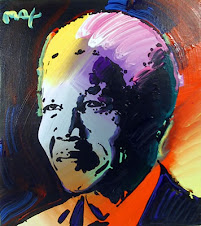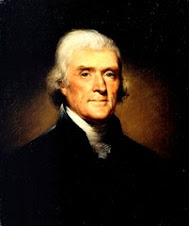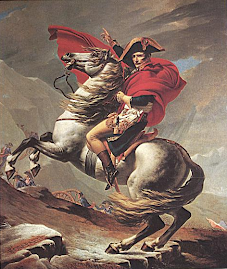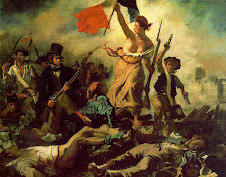Friday, December 18, 2009
Blog #6 Industrial Revolution Due 1/6/10
Remember to respond to the question in 6-8 sentences (yes it can be longer) and to respond to two of your classmates answers in 4-6 sentences. Do not just agree or disagree without defending or justifying your argument.) NOTE: YOU CANNOT SAY "I AGREE WITH JOE AND BOB AND WRITE ONE RESPONSE. IT MUST BE TWO SEPARATE RESPONSES WITH TWO DIFFERENT EXAMPLES TO SUPPORT WHAT YOU SAY. Think above and beyond the common answers that you may see. Be sure to challenge your classmates with controversial tactics, actions or selections. Good Luck!!!! Go Mustangs!!!
Monday, December 14, 2009
Thursday, November 19, 2009
Chapter 18 & 19 French Revolution & Napoleon Review Section
Blog #5 French Revolution and Napoleon
Remember to respond to the question in 6-8 sentences (yes it can be longer) and to respond to two of your classmates answers in 4-6 sentences. Do not just agree or disagree without defending or justifying your argument.) NOTE: YOU CANNOT SAY "I AGREE WITH JOE AND BOB AND WRITE ONE RESPONSE. IT MUST BE TWO SEPARATE RESPONSES WITH TWO DIFFERENT EXAMPLES TO SUPPORT WHAT YOU SAY. Think above and beyond the common answers that you may see. Be sure to challenge your classmates with controversial tactics, actions or selections. Good Luck!!!! Go Mustangs!!!
Resource: Read and analyze the information in the document packet. Pay particular attention to the different points of view of Napoléon's contemporaries and of modern-day historians regarding Napoléon's personality, tactics, and legacy.
Wednesday, November 4, 2009
Chapters 14-17 Powerpoint and study group discussion section
Tuesday, November 3, 2009
Blog #4 18th Century Due 11/22
Tuesday, October 27, 2009
Chapter 13 PPT - CHECK COMMENT SECTION FOR TEST CLUES!
Peter the Great Video
Peter the Great Video approx. 20 mins. Great source for his rise to power and Russian History.
Mercantilism Document Activity EXTRA-CREDIT
Mercantilism Document Activity
Thursday, October 15, 2009
Blog #3 Age of Absolutism Due 10/30 revised date
Resources:
17th Century England Events
Decline and Fall of the British Aristocracy
Social Conditions in France
Louis XIVs Court
Lifestyles of 17th Century People
Sunday, September 27, 2009
Blog #2 Unit 2 Reformation
Tuesday, September 15, 2009
Monday, September 14, 2009
Saturday, September 12, 2009
Wednesday, September 9, 2009
Personal Statement Blog #1
Blog #1 Personal Statement
Please write a Statement and post it in the comment section. Please write it before you look at everyone else's statement. Create the statement for the following question: To what extent, and in what ways has being a student at Roosevelt High School affected you? (Yes, some of you are new but focus on your high school career in general)
Many questions can be answered by considering the political, economic, religious, social, intellectual, and artistic factors related to the question.
Political - In most areas of life, there is some sort of leadership/government entity that allows things to function effectively. Imagine class without me there???? When you examine your question, consider the political effects. For example, does Renaissance humanism have a political effect. I think you could argue that it does when you consider the concept of civic humanism/purpose of education.
Economic - $$$ is a huge motivator, and is often a necessity. Are jobs affected, whole nation's economies, are people in specialized fields affected??? For example does Renaissance humanism have an economic effect. I think you could argue that it does because an emphasis on studying antiquities and copying the past leads to artists who create works of art, and it changes the role of the artist in society.
Religious - Religious beliefs are a large part of life for many people. People turn to religion to understand the world in which they live. Religious beliefs permeate through society and have an effect on laws, education....etc.. For example, does Renaissance humanism have an effect on religious thought? you bet. From the sacred to the secular.
Social - How do people form themselves into groups. How do we organize ourselves. Look at the groups that hang out at lunch? Was there a social effect of Renaissance humanism?
Intellectual - Intellectuals spend their time thinking about the big picture. Are there new ideas? are there justifications for certain actions? Do intellectuals inspire leaders? Usually intellectual ideas are a bridge between the political, religious, economic, and social.
Artistic - How do we express ourselves? What does that say about society?
My point is that many of your thesis statements can discuss these different areas of human life. I think you could add technological, but it does not fit the acronym so just put technological under intellectual.
: )Hope this helps.
Monday, August 31, 2009
Welcome to APEH
Tuesday, March 31, 2009
Inter War Years/Start of WWII Blog #12 Due 4/12
 The fall of the Weimar Republic holds important lessons for the conditions necessary for a stable democracy. This article discusses the economic and political factors that created the opportunity for Hitler to gain control of Germany. Link: The Fall of the Weimar Republic
The fall of the Weimar Republic holds important lessons for the conditions necessary for a stable democracy. This article discusses the economic and political factors that created the opportunity for Hitler to gain control of Germany. Link: The Fall of the Weimar Republic Monday, March 9, 2009
Unit 9 World War I and Interwar Years (2 parts)
Part II: World War I was a turning point in world history in numerous ways. The war showed the horror of industrial warfare and scarred an entire generation's psyche. Governments, particularly those in industrialized nations, grew in power and gained more influence over economic production and individual lives. Propaganda campaigns showed how societies could be mobilized to behave in certain manners without any overt coercion. Women assumed new roles in society and gained the right to vote in some countries such as the United States and Britain. Thus, World War I encouraged people to question old assumptions. For example, read the essays at The Russian Revolution of 1917 and The German Revolution of 1918. Why were so many people in Russia and Germany willing to support the socialist goals of these revolutions?
This blog has two parts to it so please be sure to answer both parts and respond to your classmates as well. Remember to respond to the question in 6-8 sentences (yes it can be longer) and to respond to two of your classmates answers in 4-6 sentences. Do not just agree or disagree without defending or justifying your argument. Think above and beyond the common answers that you may see. Be sure to challenge your classmates with controversial tactics, actions or selections. Good Luck!!!! Go Mustangs!!!
Tuesday, February 24, 2009
The Responsive National State, 1871 1914
Monday, February 23, 2009
Blog #10 Nationalism Due 3/8/09

Why did more and more people identify with the nation state as opposed to class, religion, or other demarcations? Read the Italian Giuseppe Mazzini's answer at http://www.fordham.edu/halsall/mod/1852mazzini.html (Modern History Sourcebook: Giuseppe Mazzini: On Nationality, 1852.) What does Mazzini mean when he claims that "the social question may, in effect, although with difficulty, be partly resolved by a single people"? What was the social question to which he was referring? Why did he believe only nation states could resolve this question?
Thomas Escott partly answers this question at http://www.fordham.edu/halsall/mod/1885escott.html (Modern History Sourcebook: Thomas Escott (1844-1924): England: Her People, Polity, and Pursuits, 1885.) In this essay, he praises the inclusion of the middle classes into Parliament. Why does he argue that this benefited Great Britain? Nationalists assumed that strong nation states could deal with the problems of the industrial era by fostering a sense of inclusion in a national community. This community could then tackle problems in ways that would benefit all groups.
This blog has two parts to it so please be sure to answer both parts and respond to your classmates as well. Remember to respond to the question in 6-8 sentences (yes it can be longer) and to respond to two of your classmates answers in 4-6 sentences. Do not just agree or disagree without defending or justifying your argument. Think above and beyond the common answers that you may see. Be sure to challenge your classmates with controversial tactics, actions or selections. Good Luck!!!! Go Mustangs!!!
Tuesday, January 27, 2009
Blog # 9 Nationalism and Liberalism's effects on Women
http://www.fordham.edu/halsall/women/womensbook.html#Early%20Modern%20Europe
(Remember to respond to the question in 6-8 sentences (yes it can be longer) and to respond to two of your classmates answers in 4-6 sentences. Do not just agree or disagree without defending or justifying your argument.) Think above and beyond the common answers that you may see. Be sure to challenge your classmates with controversial tactics, actions or selections. Good Luck!!!! Go Mustangs!!!
Tuesday, January 13, 2009
Blog #8 Industrial Revolution Due 1/18









